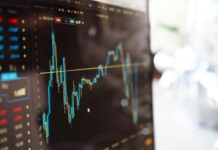When it comes to diving into the world of investments, many traders often wonder, what makes Forex different from other financial markets? This question sparks a lot of curiosity because the Forex market, also known as the foreign exchange market, operates in ways that are uniquely distinct from stocks, commodities, or even cryptocurrency trading. If you’re someone who’s eager to uncover the key differences between Forex and traditional markets, you’re in the right place. In this article, we’ll explore the ins and outs of Forex trading and reveal why it stands out as one of the most dynamic and potentially profitable financial markets worldwide.
So, what really sets Forex apart from the rest? For starters, the Forex market is the largest and most liquid market globally, with a daily trading volume that dwarfs other financial markets. Unlike stock exchanges that have fixed trading hours, Forex operates 24 hours a day, 5 days a week, providing unparalleled access and flexibility for traders around the globe. But that’s not all – Forex trading involves currency pairs, meaning you’re always trading one currency against another, which introduces unique opportunities and risks that you won’t find in other markets. Curious about how leverage, volatility, and market participants differ in Forex compared to equities or commodities? Keep reading to discover the exclusive features of Forex trading and why millions of traders are turning to this market to diversify their portfolios and achieve financial freedom.
Top 7 Key Differences Between Forex and Stock Markets Every Trader Should Know
Navigating the world of financial markets can be confusing, especially when comparing the forex and stock markets. Many traders, newbies or even experienced ones, often wonder what makes forex so different from other financial markets. Understanding these differences is crucial because it affects trading strategies, risk management, and potential profits. In this article, we will explore the top 7 key differences between forex and stock markets every trader should know. This guide is especially helpful for those based in New York, where both markets are highly active.
1. Market Hours and Accessibility
One of the biggest differences between forex and stock markets is their operating hours. The forex market never sleeps — it operates 24 hours a day, five days a week. This is because it spans across multiple countries and time zones, including major financial centers like London, Tokyo, and New York. In contrast, stock markets such as the New York Stock Exchange (NYSE) have fixed trading hours, typically from 9:30 AM to 4:00 PM EST. This means traders in stocks have to work within tighter time frames.
Forex traders can enter or exit positions any time during the week, which makes it more flexible for different trading styles. Stock traders must plan around market openings and closings, which can affect liquidity and price volatility.
2. Market Size and Liquidity
Forex is considered the largest financial market in the world, with a daily trading volume exceeding $6 trillion as of 2024. This massive liquidity means that traders can usually buy or sell currencies with minimal price slippage. Stocks, however, vary widely in liquidity. Large-cap stocks like Apple or Microsoft have high liquidity, but smaller companies or niche sectors might not.
Because forex pairs like EUR/USD or USD/JPY are so heavily traded, spreads (the difference between bid and ask prices) are generally lower than those found in many stocks. This can make forex trading more cost-effective, especially for frequent traders.
3. Instruments Traded
The forex market primarily deals in currency pairs. Traders speculate on the relative strength of one currency against another, such as the US dollar versus the euro. Stock markets deal with shares of ownership in companies. When you buy a stock, you essentially own a piece of that company, with rights to dividends and voting in some cases.
Forex trading is more about macroeconomic factors influencing exchange rates, while stock trading often depends on company performance, earnings reports, and industry trends. This fundamental difference means traders need different kinds of analysis depending on which market they focus on.
4. Leverage and Margin Requirements
Forex brokers often offer very high leverage, sometimes up to 100:1 or even more, depending on the jurisdiction and broker regulations. Leverage allows traders to control a large position with a relatively small amount of capital. However, this also increases the risk of significant losses.
Stock traders generally have lower leverage limits. For example, in the United States, retail stock traders are usually limited to 2:1 leverage. This makes forex more attractive for those who want to maximize potential returns, but it also means forex trading is riskier if not managed properly.
5. Regulation and Market Transparency
Stock markets are heavily regulated by government bodies like the Securities and Exchange Commission (SEC) in the U.S. These regulations are designed to protect investors by enforcing transparency, fair trading practices, and disclosure requirements.
Forex markets, on the other hand, are decentralized and less regulated globally. While major forex brokers in the U.S. must comply with regulatory bodies like the Commodity Futures Trading Commission (CFTC) and National Futures Association (NFA), forex trading still carries a higher risk of encountering unscrupulous entities. This difference means forex traders need to be extra cautious and choose reputable brokers.
6. Price Influencing Factors
The factors driving price movements in forex and stock markets are quite different. Forex prices are mainly influenced by macroeconomic indicators like:
- Interest rate decisions
- Inflation data
- Employment reports
- Political events and geopolitical tensions
Stock prices are more influenced by company-specific events and sector-wide news, including:
- Earnings reports
- Mergers and acquisitions
- Product launches
- Changes in management
Because of this, forex trading often requires a broader understanding of global economics, while stock trading may demand deeper knowledge about individual companies and industries.
7. Trading Costs and Fees
Trading costs can vary significantly between forex and stock markets. Forex brokers typically charge through the spread, which is the difference between the buying and selling price of currency pairs. Some forex brokers may also charge a commission per trade, but many operate on a spread-only basis.
Stock trading often involves commissions per trade, although many brokers have moved to commission-free trading in recent years. Additionally, stock traders might face fees related to market data subscriptions or account maintenance.
Here’s a simple comparison table to summarize some of these costs:
| Aspect | Forex Market | Stock Market |
How Does Forex Trading Stand Out? Exploring Unique Features of the Forex Market
Forex trading is unlike any other financial market you might encounter. For traders in New York and around the world, understanding what makes forex stand out is crucial before diving in. While stock or commodity markets have their own charm, forex has unique features that make it one of the most exciting and dynamic places to trade. But what exactly makes forex different from other financial markets? This article explores the distinctive characteristics of the forex market and explains why it continues to attract millions of traders globally.
What is Forex Trading?
First, forex or foreign exchange trading is the buying and selling of currencies against each other. Unlike stocks, which represent ownership in companies, forex trading deals with the relative value between two currencies. The forex market is where banks, corporations, governments, and individual traders exchange currencies, determining exchange rates in real-time.
The market operates 24 hours a day, five days a week, which is quite different compared to stock exchanges that usually have fixed trading hours. For example, the New York Stock Exchange opens from 9:30 AM to 4:00 PM EST, but forex never really sleeps, opening Sunday evening and closes Friday evening in New York time. This nonstop action allows traders to react immediately to global economic events and news, which makes forex highly liquid and volatile.
Unique Features of Forex Market
Some of the unique features of forex that makes it different from other markets include:
- High Liquidity: Forex is the largest financial market in the world, with daily trading volume exceeding $7 trillion. This immense volume ensures traders can enter or exit positions easily without affecting prices much.
- Decentralized Market: Unlike stock markets, forex doesn’t have a centralized exchange. Trades happen over-the-counter (OTC) through a network of banks and brokers. This decentralization means no single entity controls the market.
- Leverage Availability: Forex brokers offer high leverage, sometimes up to 100:1 or even more. This allows traders to control large positions with a small amount of capital, increasing both profit potential and risk.
- Currency Pairs Trading: Forex trading always involves pairs, like EUR/USD or USD/JPY. This means you’re buying one currency while selling another, providing unique opportunities based on global economic differences.
- Lower Transaction Costs: Because of its liquidity and competition among brokers, forex trading usually has low spreads and commissions compared to other markets like stocks or futures.
- Global Market Impact: Forex prices react instantly to geopolitical events, central bank policies, and macroeconomic reports. This makes it highly sensitive and reactive compared to some other financial instruments.
How Forex Differs From Stock Market and Others
To understand forex better, it’s helpful to compare it to other markets like stocks, futures, and commodities. Here’s a quick comparison:
| Aspect | Forex Market | Stock Market | Futures Market | Commodity Market |
|---|---|---|---|---|
| Trading Hours | 24/5 (around the world) | Fixed hours (e.g., 9:30–4 EST) | Fixed hours, often less than 24 hrs | Fixed hours, often less than 24 hrs |
| Market Type | Decentralized OTC | Centralized Exchanges | Centralized Exchanges | Centralized Exchanges |
| Assets Traded | Currency pairs | Company shares | Contracts on assets | Physical goods (oil, gold) |
| Leverage Offered | Very high (up to 100:1+) | Usually low to moderate | Moderate to high | Moderate |
| Liquidity | Extremely high | High, but varies by stock | Varies by contract | Varies by commodity |
| Influencing Factors | Global macro, politics, banks | Company earnings, industry, news | Economic data, supply-demand | Supply-demand, geopolitical, weather |
This table shows forex’s flexibility and accessibility compared to more traditional markets. For example, stocks are influenced mainly by company-specific news, while forex reacts to broader economic and political events worldwide.
Historical Context of Forex Market
The forex market as we know today started to take shape after the collapse of the Bretton Woods system in the early 1970s. Before that, most currencies were pegged to the US dollar or gold, limiting free-floating exchange rates. Once currencies began to float freely, forex trading exploded, attracting banks and institutions seeking to hedge risks or profit from currency fluctuations.
New York, being one of the major financial hubs, plays a crucial role in forex. The New York forex session overlaps with London’s, which creates some of the highest liquidity and volatility periods during the day. Traders in New York benefit from real-time news and economic reports which heavily influence forex prices.
Practical Examples of Forex’s Unique Trading Environment
Imagine a scenario where the Federal Reserve announces an unexpected interest rate hike. Forex traders instantly react by buying the US dollar against other currencies because higher
Why Forex Market Liquidity Outshines Other Financial Markets: A Deep Dive
Why Forex Market Liquidity Outshines Other Financial Markets: A Deep Dive
The forex market, known as the largest financial market worldwide, often stands out because of its massive liquidity and round-the-clock trading. Many people wonder, why forex market liquidity outshines other financial markets, and what makes forex different from other financial markets? This article will explores these questions, providing a deep dive into the unique features that sets forex apart from stocks, commodities, and other investment arenas.
What is Forex Market Liquidity?
Liquidity in financial markets refers to how easily an asset can be bought or sold without affecting its price significantly. The forex market has incredibly high liquidity because it involves trading currencies globally, around the clock. Unlike stock exchanges that have fixed trading hours, forex operates 24 hours a day, five days a week, thanks to its decentralized nature.
The daily trading volume in forex market is estimated to be over $6 trillion as of 2024, making it by far the most liquid market in the world. This means traders can enter or exit positions quickly, with minimal price slippage which is not always possible in other markets.
What Makes Forex Different From Other Financial Markets Explained
There are several factors that make forex market unique compared to stocks, bonds, or commodities. Some of the main differences include:
Decentralization: Forex is not traded on a centralized exchange like the New York Stock Exchange or NASDAQ. Instead, it operates over-the-counter (OTC) through a global network of banks, brokers, and financial institutions.
24/5 Operation: Forex market never sleep during the weekdays. This continuous operation across different time zones enables traders from Asia, Europe, and America to participate anytime, enhancing liquidity.
Currency Pairs: Forex trading involves pairs such as EUR/USD, USD/JPY, and GBP/USD. Investors trade one currency against another, which differs from buying a single stock or commodity.
Leverage Availability: Forex brokers often offer high leverage, sometimes up to 100:1 or more, allowing traders to control large positions with small capital. This leverage is less common in other markets and adds to the appeal but also increases risk.
Market Participants Diversity: Participants range from central banks, multinational corporations, hedge funds to retail traders, creating a highly diverse and liquid environment.
Historical Context: How Forex Gained Its Liquidity Dominance
The forex market as we know it today took shape after the collapse of the Bretton Woods system in 1971. Before that, currencies were pegged to the U.S. dollar, which was backed by gold. When countries moved to floating exchange rates, currency trading surged, and liquidity exploded.
Technological advances in the 1990s and 2000s, particularly electronic trading platforms and internet access, allowed even retail traders to join the market. This democratization of forex trading massively increased market participants and liquidity.
Comparing Forex Market Liquidity to Other Markets
| Market Type | Average Daily Volume | Trading Hours | Market Structure | Typical Leverage |
|---|---|---|---|---|
| Forex | $6+ trillion | 24 hours, 5 days | OTC, decentralized | Up to 100:1+ |
| Stock Market (NYSE) | $200 billion approx | 9:30 AM – 4 PM EST | Centralized exchange | 2:1 to 4:1 |
| Bond Market | $800 billion approx | Varies, mostly 9-5 | OTC and exchanges | Typically low |
| Commodity Market | $50 billion approx | 24 hours (futures) | Centralized exchanges | Moderate |
This table show clearly how forex surpasses other markets in daily volume and trading hours. The decentralized nature also means there is no single point of failure or centralized control, which adds resilience.
Practical Examples: Liquidity Advantage in Forex Trading
Imagine you are trading EUR/USD during a major economic announcement. The high liquidity means your order will likely execute near the current market price without big slippage. In contrast, trying to buy or sell a less liquid stock during volatile times may result in wide bid-ask spreads and price gaps.
Also, forex market liquidity allows for quick position adjustments. For example, a trader wanting to close a large position in USD/JPY can usually do so within seconds, whereas selling a large block of shares in a small-cap stock might take much longer and cause price drops.
Why Liquidity Matters to Forex Traders
Tighter Spreads: High liquidity equals narrower bid-ask spreads, reducing trading costs.
Faster Execution: Trades happen instantly, which is critical during fast-moving markets.
Less Volatility: Big trades have less impact on price, making
Forex vs. Cryptocurrency: What Makes Forex Trading More Stable and Reliable?
Forex trading and cryptocurrency trading have both been gaining huge attention from investors worldwide, especially in places like New York where financial markets are always buzzing. But when it come to stability and reliability, many traders still prefer Forex over crypto. So what makes Forex trading more stable and reliable? And how does Forex differ from other financial markets, including crypto? This article explores these questions with clear facts, examples, and comparisons to help you understand better.
What Makes Forex Trading More Stable and Reliable?
Forex (short for foreign exchange) trading involves buying and selling currencies, and it has been around for decades, much longer than cryptocurrencies. The Forex market is one of the largest financial markets in the world, with a daily trading volume exceeding $6 trillion as of recent data. This huge volume brings liquidity, which means it is easier to enter and exit trades without causing major price swings. Cryptocurrencies, by contrast, often suffer from lower liquidity, which can lead to high volatility and unexpected price jumps.
Another factor contributing to Forex’s stability is regulation. Forex markets globally are regulated by several financial authorities like the Commodity Futures Trading Commission (CFTC) in the U.S., the Financial Conduct Authority (FCA) in the UK, and others. These regulations protect traders from fraud, market manipulation, and ensure transparency. Cryptocurrencies, however, operate in a more decentralized and often unregulated environment, which increases risks like hacking, scams, and sudden regulatory crackdowns.
Also, Forex markets operate 24 hours a day on weekdays, which allows for continuous trading and better price discovery as global economic news is digested in real-time. Though cryptocurrencies trade 24/7, the absence of traditional financial controls can cause sharp price movements during off-hours or when major news breaks suddenly.
What Makes Forex Different From Other Financial Markets Explained
Forex is unique when compared to stock markets, commodity markets, and cryptocurrency markets. Below are some key characteristics that set Forex apart:
Market Size and Volume
Forex is the largest financial market by far, dwarfing stock and commodity markets. This size provides immense liquidity and generally narrower spreads (the difference between buy and sell prices).Decentralized but Regulated
Unlike stock exchanges, Forex does not have a centralized exchange. Trades happen over-the-counter (OTC) through a network of banks and brokers. However, this market is still regulated heavily at national and international levels, providing some investor protections.Currency Pairs Trading
Forex trading always involves pairs of currencies, like EUR/USD or USD/JPY. The value of one currency is always measured against another, making it fundamentally different from buying a single asset like a stock or a cryptocurrency token.Influence of Macroeconomic Factors
Currency prices are strongly influenced by macroeconomic indicators such as interest rates, inflation, GDP growth, and geopolitical events. This often makes Forex more predictable, as these data points are published regularly and widely analyzed.Lower Volatility Compared to Crypto
While Forex can have volatile moments, especially during economic announcements, it is generally less volatile than cryptocurrencies, which can see double-digit percentage changes in hours due to market sentiment or technical factors.
A Table Comparing Forex, Cryptocurrency, and Stock Markets
| Feature | Forex Market | Cryptocurrency Market | Stock Market |
|---|---|---|---|
| Market Size (Daily Volume) | Over $6 trillion | Around $200 billion | Varies by exchange, trillions annually |
| Trading Hours | 24 hours, 5 days a week | 24/7 | Usually 6-8 hours, 5 days a week |
| Regulation | Highly regulated | Mostly unregulated or loosely | Heavily regulated |
| Asset Type | Currency pairs | Digital tokens/coins | Shares of companies |
| Volatility | Moderate | Very high | Moderate to high |
| Liquidity | Very high | Moderate to low | High |
Practical Examples Showing Forex Stability
Imagine a trader in New York watching the EUR/USD pair. If the European Central Bank announces a change in interest rates, the Forex market usually reacts swiftly but not erratically. The price moves in response to that news, but due to high liquidity and regulation, the moves are more controlled.
Now compare that to a cryptocurrency like Bitcoin. If a major country suddenly bans Bitcoin transactions, the price might crash by 20% or more within minutes. This extreme reaction is common in crypto but rare in Forex markets.
Why Forex Is Preferred by Many Experienced Traders
Experienced traders often choose Forex because they want a market with:
- Predictable economic data releases to plan trades
- Lower risk of market manipulation
- Access to leverage with regulated brokers
- Established trading infrastructure and tools
- Ability to trade major global currencies instead of niche
Discover the Impact of 24-Hour Trading on Forex Compared to Traditional Financial Markets
The world of financial trading is vast and complex, but one thing that stands out clearly is how the forex market operates differently from traditional financial markets. Many traders and investors often wonder, “What makes forex different from other financial markets?” and “How does 24-hour trading impact forex compared to stock or commodities markets?” Well, if you look closely, the forex market has unique characteristics that set it apart and influence how traders approach it, especially here in New York, which is one of the major forex hubs globally.
The Uniqueness of 24-Hour Trading in Forex
One biggest difference between forex and traditional markets is the time forex market operates. Unlike stock exchanges, which usually open from 9:30 AM to 4:00 PM local time on weekdays, the forex market never really sleeps. It’s open 24 hours a day, five days a week, starting with the Sydney session and then moving through Tokyo, London, and finally the New York session.
Because of this continuous trading, forex traders can react instantly to global events no matter what time it is. For example, if a major economic news release happens in Asia during New York’s nighttime, forex prices can still move dramatically while stock markets are closed. This gives forex a high degree of liquidity and volatility around the clock.
Some key points about 24-hour trading in forex:
- Opens Sunday evening for New York traders and closes Friday evening.
- Multiple overlapping sessions increase trading volume.
- Enables quick response to geopolitical or economic news globally.
- Reduces the risk of price gaps that are common in stock markets after hours.
This constant availability makes forex very attractive for those who want flexibility and opportunity beyond the typical market hours.
What Makes Forex Different From Other Financial Markets Explained
When comparing forex to other financial markets like stocks, bonds, or commodities, several fundamental differences come into play. These differences affect risk, pricing, accessibility, and the overall trading experience.
Market Structure
- Forex is a decentralized market with no single central exchange.
- Stocks are traded on centralized exchanges like NYSE or NASDAQ.
- Commodities trade on specific exchanges such as the CME or ICE.
Because forex is decentralized, pricing can vary slightly between brokers, but it also means it’s less affected by a single exchange’s rules or technical issues.
Liquidity
- Forex market is the largest in the world, with over $6 trillion traded daily.
- Stock markets have high liquidity but are limited to specific hours.
- Bond and commodities markets have lower liquidity comparatively.
Leverage
- Forex brokers often offer high leverage, sometimes up to 100:1 or more.
- Stock markets usually have lower leverage limits.
- This high leverage can amplify gains but also increase risks significantly.
Trading Instruments
- Forex involves currency pairs like EUR/USD, GBP/JPY, etc.
- Stocks represent ownership in companies.
- Commodities include physical goods like gold, oil, and agricultural products.
Price Influences
- Forex prices influenced heavily by macroeconomic factors, central bank policies, and geopolitical events.
- Stocks influenced by company earnings, sector performance, and market sentiment.
- Commodities driven by supply-demand dynamics and geopolitical tensions affecting production.
Historical Context of Forex and Traditional Markets
The forex market, as we know it today, started to evolve after the collapse of the Bretton Woods system in 1971. Before that, currencies were pegged to the US dollar, which was convertible to gold. Once the fixed exchange rates ended, currencies began floating freely, creating a need for a global market to trade these currencies.
Stock markets, on the other hand, have been around for centuries. The New York Stock Exchange began in 1792, and over time it become the primary marketplace for buying and selling shares of American companies. Commodities exchanges also have long histories but are focused on tangible goods rather than currencies.
This historical difference explains why forex is more focused on global macroeconomic factors and operates continuously, while stock markets are more tied to specific companies, their performance, and operate within fixed hours.
Practical Examples That Show The Difference
Imagine a trader in New York watching the EUR/USD pair at 10:00 PM. The New York Stock Exchange is closed, so the trader can’t buy or sell stocks until the next day. But in forex, the trader can still access the market because the Asian session is open, and currency prices might be moving due to economic data released in Japan or Australia.
Another example: Suppose the Federal Reserve announces an emergency rate cut late on a Tuesday evening. Stock markets will only react fully when they open the next day, but forex traders can respond immediately, causing rapid price changes in currency pairs like USD/JPY or USD/CAD.
Comparison Table: Forex vs Traditional Markets
| Feature | Forex Market | Stock Market |
Conclusion
In conclusion, Forex stands out from other financial markets due to its unparalleled liquidity, 24-hour accessibility, and global reach, allowing traders to engage at almost any time and from anywhere in the world. Its decentralized nature eliminates the need for a central exchange, creating a highly competitive environment that often results in tighter spreads and lower transaction costs. Additionally, the Forex market’s high volatility presents both unique opportunities and risks, making it essential for traders to have a solid understanding of economic indicators and geopolitical factors. Unlike stock or bond markets, Forex trading focuses on currency pairs, adding a layer of complexity and diversity for participants. Whether you are a novice or an experienced investor, recognizing these distinct characteristics can help you make more informed decisions. To leverage the benefits of Forex trading effectively, consider developing a strategic approach and continuously educating yourself on market dynamics. Start exploring the Forex market today and unlock its potential for your financial growth.




















